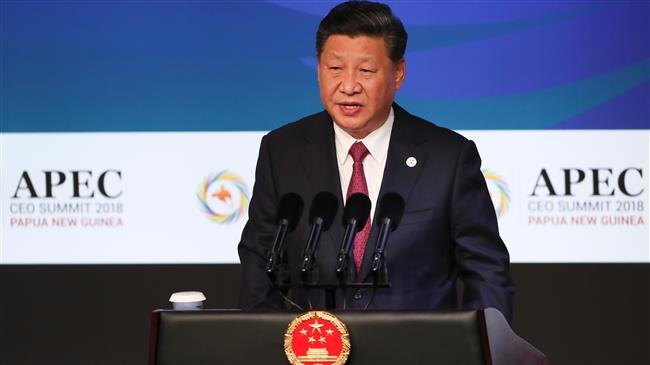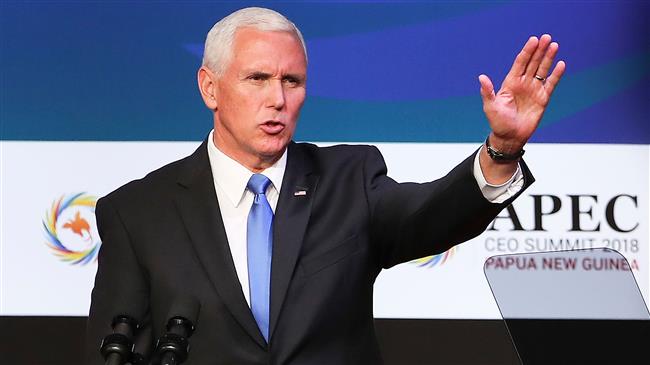
US clash at summit, Xi says Silk Road not ‘trap’
China’s President Xi Jinping has rejected US criticism of Beijing’s Belt and Road Initiative, saying it is not “a trap”. “It is not designed to serve any hidden geopolitical agenda,” Xi emphasized on Saturday in an address before a meeting of the Asia Pacific Economic Cooperation (APEC). He was referring a massive infrastructure and development…
China’s President Xi Jinping has rejected US criticism of Beijing’s Belt and Road Initiative, saying it is not “a trap”.
“It is not designed to serve any hidden geopolitical agenda,” Xi emphasized on Saturday in an address before a meeting of the Asia Pacific Economic Cooperation (APEC).
He was referring a massive infrastructure and development project spanning Southeast Asia, Central Asia, Africa, the Middle East and Africa.
“It is not targeted against anyone, and it does not exclude anyone. Nor is it a trap, as some people have labelled it,” Xi said.
He further lashed out at “America First” trade protectionism and in an open criticism of Washington underlined that global trade rules should not be applied “with double standards or selfish agendas.”
The project is also known as Silk Road Economic Belt.
Xi made the remarks at the APEC summit in Papua New Guinea, where US Vice President Mike Pence touched on the US-China trade dispute, saying that the Trump administration will not change course of tariffs until China “changes its ways.”

While Washington has imposed tariffs on $250 billion in Chinese imports, Beijing has slapped tariffs on $110 billion in imports from the US in retaliation, effectively halting its purchase of key US agricultural exports.
US VP blasts China’s Silk Road Initiative
Pence began his speech at the summit by slamming China’s Belt and Road Initiative (BRI), arguing that Chinese funding of infrastructure project is burdening developing nations with debt. He also claimed that US commitment to the Indo-Pacific had never been stronger.
“The United States offers a better option. We don’t drown our partners in a sea of debt,” he further claimed. “We don’t offer a constricting belt or a one-way road.”
Amid fears diplomatic and trade friction could spill over into the military sphere, the American vice president also vowed that the US would join forces with Australia in the development of a new naval base in the region.
Also in an apparently deliberate move to irritate Beijing, Pence also arranged a meeting with Taiwan’s APEC representative. China claims full sovereignty over Taiwan, which broke away from mainland China during a civil war in 1949. Almost all countries, including the US, have recognized that sovereignty under a policy known as “One China.”
Pence also tried to lure Pacific nations into embracing the United States, which he claimed did not offer a “constricting belt or a one-way road”, in a scornful reference to the BRI.
The senior US official further alleged that the terms of China’s loans were “opaque at best” and “too often, they come with strings attached and lead to staggering debt.”
“Do not accept foreign debt that could compromise your sovereignty,” he said. “We don’t drown our partners in a sea of debt… We don’t coerce, corrupt, or compromise your independence. The United States deals openly and fairly.”
Xi, however, denied Pence’s remarks, warning that no one would gain from escalating tensions between Washington and Beijing.
“History has shown that confrontation — whether in the form of a cold war, hot war or trade war — will produce no winners,” he further emphasized.
Xi also urged the world to “say no to protectionism and unilateralism,” describing it as a “short-sighted approach” that was “doomed to failure.”
